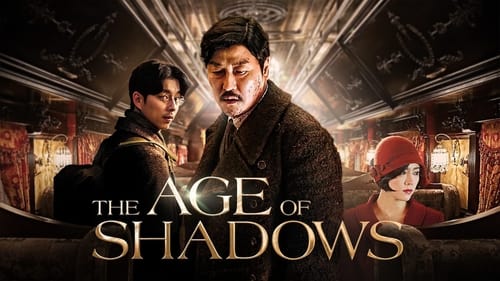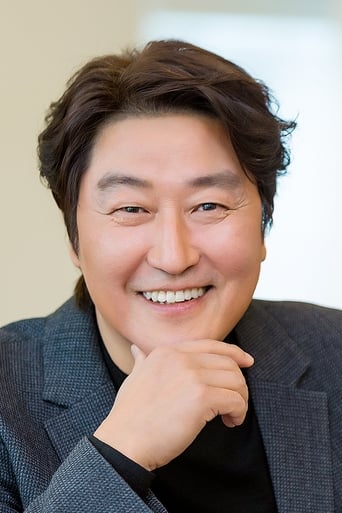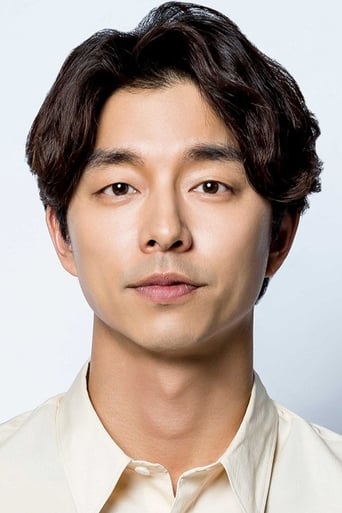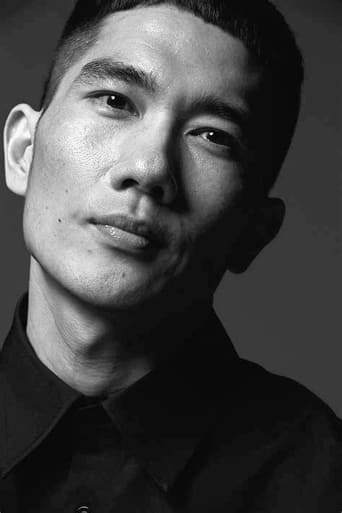Clevercell
Very disappointing...
TrueHello
Fun premise, good actors, bad writing. This film seemed to have potential at the beginning but it quickly devolves into a trite action film. Ultimately it's very boring.
Senteur
As somebody who had not heard any of this before, it became a curious phenomenon to sit and watch a film and slowly have the realities begin to click into place.
Dirtylogy
It's funny, it's tense, it features two great performances from two actors and the director expertly creates a web of odd tension where you actually don't know what is happening for the majority of the run time.
morrison-dylan-fan
Getting the chance to host the ICM film festival for the second time,I took a look at the titles set for festival viewing. Recently watching his magnificent 2003 Horror A Tale of Two Sisters,I was absolutely thrilled to see Kim Jee-woon's latest in the listings,which led to me stepping into the shadows.The plot-1920's Korea:Under Occupation from the Japanese,a Resistance movement starts building underground to overthrow the invaders from Korea. Wanting to root out troublemakers, the Japanese order Korean police captain Lee Jung-chool to track down members of the Resistance. Known for doing deals to stay on the safe side of the Occupiers,Chool is hit by the death of Resistance member Kim Jan-OK,who used to be a school friend. Learning of Jan-OK's murder weighing heavy on Chool, Resistance leader Che-san begins attempting to turn Chool to their side,as the Resistance start planning a major fightback,by making bombs in the shadows.View on the film:Unleashing his first period piece, co-writer/(with Ji-min Lee/ Jong- dae Park and Kathy Pilon) director Kim Jee-woon & cinematographer Kim Ji-yong create an immaculate presentation,with dazzling crane shots gliding along the rich primary colours covering the corridors of the ruling Japanese,Jee-woon sends coiled shots down the drenched in fog streets,where Resistance fighters are attempting to walk down unnoticed. Retaining the eye he had in examining the psychological horror in A Tale of Two Sisters, (with the torture that the Resistance fighters suffer being bloody and blunt,as tightly-held close-ups reveal their resistance to giving secrets away) Jee-woon brilliantly expands his psychological examination into Neo-Noir, where this age of shadows is lit with beautiful panel shots and elegant low-lighting capturing the anxiety of being caught,that the Resistance is under. Following the Resistance's plan of attack at every stage of inception, Jee-Woon and Ji-Yong uncover griping Neo- Noir set-pieces such as a 20 minute train journey,set alight by Jee- Woon's ultra-stylised tracking weaving between Resistance fighters hiding with the passengers,and the mighty fist of the police walking down each carriage in long takes of them trying to sniff out the rebels.Giving them not only the Occupiers,but fears of betrayal within their own group to fight against, the screenplay by Jee-woon/Ji- Min / Jong-dae and Kathy Pilon sharply turn the screws of Noir pressure on the gang, via every move to bring Chool closer to the group being drenched in anxiety. Making the 2 and a half run time feel like nothing, the writers bravely show little concern over Chool (played by a superb Song Kang-ho) being likable,as any help he offers to the Resistance is balanced with sudden outbursts of brutality that explode into a pitch-black ending of deep Film Noir pessimism,where Chool sets alight the age of shadows.
Armin Callo
This film has strong commercial potential because of its suspenseful narrative structure; the bravado cinematography and editing; the strong acting; the powerfully evocative production design; and the effective musical score. Loved the entire look of the film. Love the sepia tone, the 1920s period costumes and sets, the compelling storyline, and the circularity of the narrative structure. To me, the strongest storytellers working today in cinema are from Asia, and that makes me so very happy as Asian cinema has lost a lot of its standing in World Cinema without the post-War (II) Japanese masters.Score Grid (out of 4)Script/Story: 4Cinematography/Visual Effect: 4+Editing: 4Sound/Musical Score: 4Production Design: 4+Acting/Performance: 4Recommend the film? Absolutely. This foreign film has the appeal of today's Hollywood products: the action, suspense, music, etc. The operatic concluding scene -- underscored by Ravel's Bolero -- owes so much to both Scorsese and FFCoppola. Also to Andrze Wajda really in look and feel; wonder if Kim Jee-woon is familiar with the Polish master's work?Thumbs way up!
Mek Torres
Well, that was a lot of fun. The Age of Shadows is a spy thriller that is basically a ticking bomb and once things go wrong, it just gets brutal and chaotic. The set up for these characters and their plot is well put together enough to be engrossing. And the set pieces are just excitingly executed. The film is unafraid of showing something terrible from their consequences. Though there is one point at the third act where I wished the film had ended. It gets to feel a little too long as it goes on, but man, the train sequence alone is one hell of an exercise for suspense. The production is also too impressive and the acting is quite engaging. Overall, it's a dark and brutal, yet quite an edge of your seat cinematic thrill ride.
alexdeleonfilm
Mil Jeong (밀정 ~ The Age of Shadows). Viewed at 2016 Venice FilmFestival. Tremendous Korean epochal drama about life and resistance under the oppressive Japanese occupation in the early decades of the century. Director Kim Jaewoon really knows how to set up drama and suspense mixed with blazing action. There was so much in this film that I felt like I was watching a Beethoven symphony. Dark Sepia toned photography used to good effect enhances period feel. Musical soundtrack employs jazz and adrenaline tensor stretches and the final shootout in the train station is orchestrated deftly to Ravel's Bolero.139' running time is long and winds up with several anticlimactic codas but never lets you out if its grip. For Koreans this is clearly a film with heavy patriotic messages. The final theme is "Don't let your failures stop you -- build on them and rise to the next level" -- until victory is achieved. I would love to see this film with a Korean audience and would expect to see people on their feet cheering at the end... A young Italian I met afterwards said he loved it even though he knows nothing of the history involved. I could easily see why -- in a way this is something like a Kimchee spaghetti western and charismatic actor Kang-ho Song, 49, has got to be the Korean equivalent of John Wayne, or at least, Robert Mitchum.






